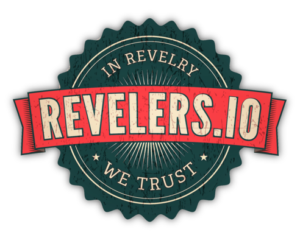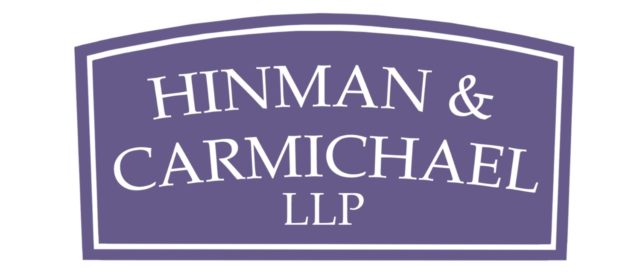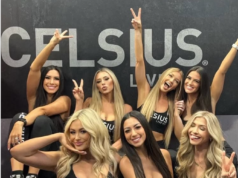Crowdfunding is the most intriguing recent method of raising capital for the development of small new business ventures; typically in small amounts of money from a large number of people. Couple crowdfunding with the phenomenal increase in small craft producer start-ups in the wine, beer and distilled spirits industries over the course of the last five years and the result is a looming regulatory qualification and tied house nightmare for alcohol agencies operating under decades old rules designed for a past age.
Because cross-tier relationships are generally prohibited by federal and state laws going back to the repeal of Prohibition, persons investing equity funds through crowd funding sites such as Kickstarter are not permitted to have conflicting inter-tier interests. The simplest example of a conflicting equity interest would be a person with an ownership interest in a wine, liquor or beer producer investing in a restaurant crowdfund or a person with an ownership interest in a restaurant investing in a small craft producer crowdfund.
This is not an academic issue. In Texas right now there are several currently pending law suits (Cadena, McLane’s – see below) challenging what has been called the Texas “one-share” rule where investors in industry members on one tier (such as retailers) have investors (often public investment funds) with interests in other tiers (such as international producers). While the Texas lawsuits (involving very large entities with complex ownership structures) hold the potential of changing the rules dramatically in states like Texas, the small investor Kickstarter type space is where cross-tier tied house challenge across the country is going to face its most serious test.
This conundrum was explored at the recent (end of June) National Conference of State Liquor Law Administrators conference in Chicago. The result was more questions than answers.
WHAT IS CROWDFUNDING?
There are two types of crowdfunding. One type seeks to raise equity funds in small amounts from a large number of investors. This is called “equity crowdfunding.” The second type is where items, experiences, products and services are offered in return for funds processed through the crowdfunding website. This is called “Reward” crowdfunding. The two are different in many ways but also similar with respect to the tied house laws. Equity funding implicates the basic tied house laws. Reward funding (especially when products are included) is a form of selling transaction that implicates normal regulatory issues related to product sales, invoices, event restrictions at production and other locations as well as middle tier fulfillment requirements. Depending on the form of the reward transaction, and the value involved, the “thing of value” (anti-corruption) portion of the tied house laws may also be implicated.
THE NEW FEDERAL CROWDFUNDING REGULATIONS
Congress enacted “The Jumpstart Our Business Startups Act” (the “JOBS Act”) in April 2012. It included the “Capital Raising Online While Deterring Fraud and Unethical Non-Disclosure Act of 2012” (the “CROWDFUND Act”) as Title III. This set forth a basic structure for legal equity crowdfunding under the Securities laws.
On May 16, 2016, the SEC implemented regulations setting forth the basic investment rules.
The new regulations limit investment amounts and restrict transfers, while allowing crowdfunding for only certain types of companies; and require that investment be conducted through a crowdfunding portal (like Kickstarter, although there are many others) or a licensed broker.
The restrictions are that a company cannot raise more than one million dollars in a twelve-month period and annual financial disclosures are tiered based on the amount raised.
For example: if $100,000 or less is raised, financials are certified by the principal executive officer of the company. If $100,000 to $500,000 is raised, or up to $1,000,000 if it’s the first time crowdfunding, financials are reviewed by an independent public accountant. For repeat funding in the $500,000 to $1,000,000 range the financials must be audited by an independent public accountant.
The purpose of these regulations is to prevent an investment bubble and to protect individual investors.
There are also limits on the amount an individual can invest:
For example: If either annual income or net worth of the investor is less than $100,000, then during any 12-month period, an individual can invest the greater of $2,000 or 5% of the lesser of annual income or net worth. However, if the income and net worth of the investor are over $100,000, then during the 12-month period, the person can invest up to 10% of annual income or net worth, whichever is lesser, but not more than $100,000 total.
The protections include a provision that the investor can change their mind and undo funding up to 48 hours before offer closes and cannot sell the equity investment for at least a year (this is to avoid speculation).
THE TIED HOUSE LAW REQUIREMENTS
While the JOBS Act does an admirable job of creating a new form of investment market it has nothing to say about investment in regulated industries (such as alcohol, and soon Cannabis). Rather those requirements are left to the state, and they are different in every state.
EQUITY ISSUES
The consequence of any equity purchase, however structured or consummated, is to implicate the tied house laws and basic ABC and federal qualification protocols.
First, because equity buyers into licensees are required to undergo state required qualification (and federal qualification if a producer or wholesaler level entity is involved), that fact should be disclosed in the offering documentation and considered by the equity buyer before the investment is made. This is a major trap unless the offeror carefully vets the investors and fully discloses the regulatory qualification requirements. This is because a failure to vet (and to qualify where qualification is necessary) could not only mean a loss of the investment but could also lead to an enforcement action by the relevant regulatory authorities. In almost every state there is an affidavit submitted as part of the licensing process (and attested to as true and accurate under penalty of perjury as part of the annual license renewal process). The affidavit represents that no owner of the company has an interest in another license on another tier except as disclosed, and failure to disclose is a crime.
Second, unless the state has a relevant minority shareholder or public company ownership exception (i.e., that share ownership is under some small number, like 5%, or the shares are publicly traded – most states do NOT have these exceptions), the licensee should be counselled to submit requalification documentation at the completion of the offering program with appropriate certifications of compliance with the tied house laws or other laws or regulations.
Third, other laws in many states may also limit or prohibit ownership interest in a particular license type or licensed business; such as the prohibitions on the number of premise licenses in which any one person may hold an interest. Each state has its own regulations and limitations. In California, for example, a winegrower may have an interest in no more than two on-premises licenses (subject to conditions) and in many other states there is a limitation on how many off-premises licenses may be held (such as NY, where the limit is one, NJ two, etc.). This is why all investment offerings should be cleared with legal advisors before being finalized.
REWARD ISSUES
Reward crowdfunding, not involving equity, refers to transactions where consideration is exchanged for things and experiences (such as holding events at the producer location, the right to post or be featured on artwork, the right to receive special products in the future, the right to assist in production – the imagination knows no bounds for the marketer).
Rewards should always be treated as a sale of merchandise, goods or services (including tax, invoicing and accounting consequences). There are many other potential issues with crowd-sourced rewards. For example, rewards offered by suppliers (small craft producers) and purchased by retailers (or vice versa) implicate the tied house law “thing of value” regulations as well (if product is involved) as the basic three-tier system requirements (including brand registration, invoicing, non-discrimination rules and price posting) in the state at issue for the flow of product into the marketplace.
Every Reward should be analyzed in the context of existing regulations in the state. The best way to start the analysis is to ask if you can sell the goods or services for the price expected in the normal course of business; if you can, then it is likely that you can also crowd fund the reward.
TEXAS – A LABORATORY FOR INTER-TIER OWNERSHIP ISSUES
There are two pending Texas cases involving inter-tier licensing issues now in the courts, one involving a retailer and one involving a wholesaler, and both raising the thorny issue of how much (if any) remote inter-tier cross ownership is permitted.
In Cadena, an application for licensure of a convenience store chain (OXXO) was denied because the Mexican owner of the chain (FEMSA) has a 20% interest in Heineken in Europe. Cadena lost its fight to be licensed at the lower court level and is now appealing to the Texas Supreme Court. The claim there is that the Texas one-share rule (which the TABC, by the way, denies is a rule) is unconstitutional, arbitrary, vague and, generally speaking, absurd. Here is a link to the lower court decision.
In McLane’s, a national food distributor (McLane’s is a major public company substantially owned by Berkshire Hathaway with somewhere around $48 billion in annual sales from 39 distribution centers covering all 50 states) is seeking a wholesale distributor license in Texas following its licensure as a distributor in several other states (including Tennessee). The TABC denied licensure on the grounds that Berkshire Hathaway (a public company) also has ownership interests in public investment funds that own shares in major retailers. McLane’s is now suing the TABC on various constitutional grounds that run the gamut of claims (equal protection, arbitrary and capricious, due process, Commerce Clause, etc.) but boil down to the observation that if McLane’s is in violation of the law so is every major pension fund in the US, including the one for the TABC employees. The “absurd” argument is also made in this case. Here is a link to the lawsuit filing announcement.
While these cases are Texas specific the results could very well frame the next generation of tied house analysis in all the rest of the states with respect to inter-tier equity analysis.
CONCLUSION
Crowdfunding under the new SEC rules is an exciting development in the on-going effort to capitalize small businesses, such as restaurants and craft producers. With proper attention to basic detail (qualification and vetting of proposed participants and through explanation of the limitations in the offering material) this can be the answer to the capital dreams of many entrepreneurs. However, given the danger posed by the country’s antiquated tied house laws, any budding businessperson looking to the crowdfunding capital markets for a growth solution is strongly encouraged to carefully clear their material through their accountant and their attorney. Nothing is worse than raising money and then having to give it back because due diligence was not done. Maybe one thing is worse: committing a crime (violating the tied house laws is a statutory misdemeanor in most states) without knowing about it, exposing your investing friends in the process and then having to give the money back.
Remember, as the old Sargent on Hill Street Blues said over 35 years ago: “Be careful, it’s dangerous out there.” We would add to that admonition: Do your due diligence when you raise money.
Source Hinman & Carrmichael Law.





